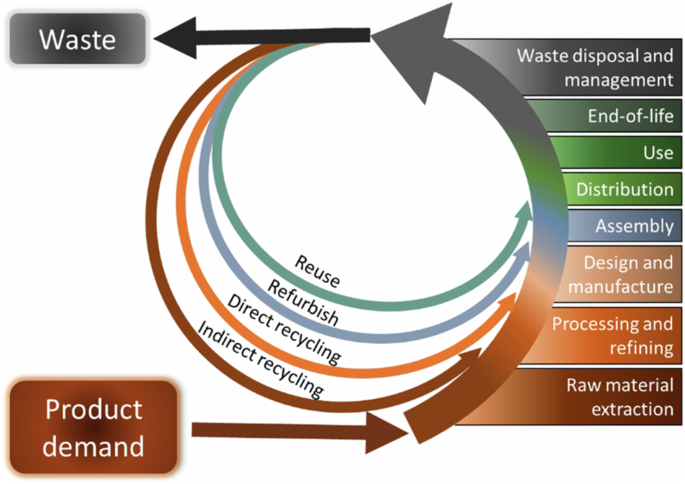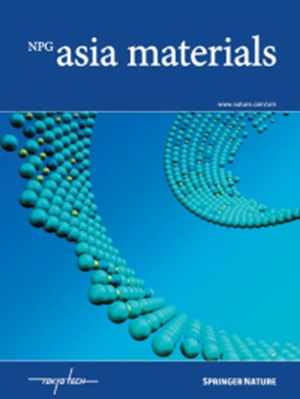锂离子电池回收--材料供应和政策基础设施回顾
IF 8.3
2区 材料科学
Q1 MATERIALS SCIENCE, MULTIDISCIPLINARY
引用次数: 0
摘要
不可否认的是,随着电池技术的发展,锂几乎立即成为了满足各种应用能源需求的关键资源。锂离子电池(LIB)性能卓越,处于行业领先地位。预计锂离子电池的应用将继续增加。可再生能源的采用刺激了锂离子电池的扩散,并导致锂离子电池废料的急剧增加。在本综述中,我们将讨论废锂电池收集和分离方法、废锂电池处理方法以及相关的经济学问题。在对文献中的一些定量分析进行回顾的基础上,我们提出了一个 "绿色分数 "的概念,以比较三种主流回收工艺:火冶、湿法冶金和直接回收。此外,我们还分析了当前政策制定和政府激励措施发展的趋势,以促进锂离子电池废弃物的回收利用。我们还分析了未来锂离子电池回收利用的前景,并提出了锂离子电池回收利用的机遇和威胁。本文章由计算机程序翻译,如有差异,请以英文原文为准。


Lithium-ion battery recycling—a review of the material supply and policy infrastructure
The current change in battery technology followed by the almost immediate adoption of lithium as a key resource powering our energy needs in various applications is undeniable. Lithium-ion batteries (LIBs) are at the forefront of the industry and offer excellent performance. The application of LIBs is expected to continue to increase. The adoption of renewable energies has spurred this LIB proliferation and resulted in a dramatic increase in LIB waste. In this review, we address waste LIB collection and segregation approaches, waste LIB treatment approaches, and related economics. We have coined a “green score” concept based on a review of several quantitative analyses from the literature to compare the three mainstream recycling processes: pyrometallurgical, hydrometallurgical, and direct recycling. In addition, we analyze the current trends in policymaking and in government incentive development directed toward promoting LIB waste recycling. Future LIB recycling perspectives are analyzed, and opportunities and threats to LIB recycling are presented. Lithium-ion battery (LIB) waste management is an integral part of the LIB circular economy. LIB refurbishing & repurposing and recycling can increase the useful life of LIBs and constituent materials, while serving as effective LIB waste management approaches. A combined effort by governments, industries and end-users will be integral in improving LIB waste collection rates which are largely lacking. A developed pseudo technical green score concept highlights direct recycling as a preferable recycling approach based on various life cycle assessment indicators. Standardized costing for the treatment of end-of-life LIBs shows pyrometallurgy as the least costly recycling approach.
求助全文
通过发布文献求助,成功后即可免费获取论文全文。
去求助
来源期刊

Npg Asia Materials
MATERIALS SCIENCE, MULTIDISCIPLINARY-
CiteScore
15.40
自引率
1.00%
发文量
87
审稿时长
2 months
期刊介绍:
NPG Asia Materials is an open access, international journal that publishes peer-reviewed review and primary research articles in the field of materials sciences. The journal has a global outlook and reach, with a base in the Asia-Pacific region to reflect the significant and growing output of materials research from this area. The target audience for NPG Asia Materials is scientists and researchers involved in materials research, covering a wide range of disciplines including physical and chemical sciences, biotechnology, and nanotechnology. The journal particularly welcomes high-quality articles from rapidly advancing areas that bridge the gap between materials science and engineering, as well as the classical disciplines of physics, chemistry, and biology. NPG Asia Materials is abstracted/indexed in Journal Citation Reports/Science Edition Web of Knowledge, Google Scholar, Chemical Abstract Services, Scopus, Ulrichsweb (ProQuest), and Scirus.
 求助内容:
求助内容: 应助结果提醒方式:
应助结果提醒方式:


